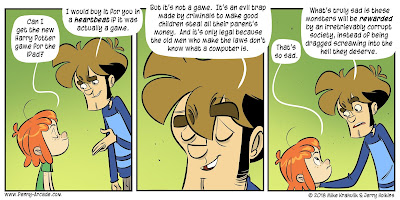 Your Brain at Work: Strategies for Overcoming Distraction, Regaining Focus, and Working Smarter All Day Long by David Rock
Your Brain at Work: Strategies for Overcoming Distraction, Regaining Focus, and Working Smarter All Day Long by David RockMy rating: 3 of 5 stars
Great advice but the presentation via examples made the material hard to endure. Also the examples were so extreme I found them to be a bit off-putting. They followed a pattern of saying that without the miracle techniques being presented in the book you would end up poor and unloved and it would be your own fault. But by applying the strategies from the book you would be successful in business, friendship, parenthood, and you would have more sex.
Don't get me wrong. There is undoubtable good advice in this book but results will vary. Some of the strategies will likely offend other people because they might feel that they are being manipulated. Read this book with a large pinch of salt.
View all my reviews








